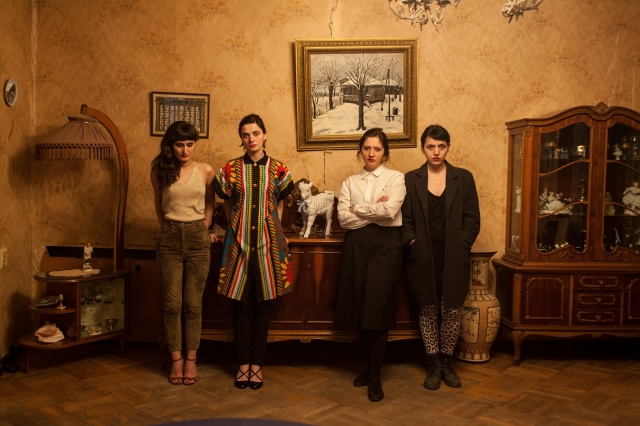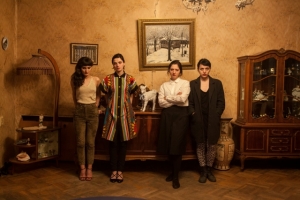When Fiction Meets Reality: Georgian Artists Refused Visas
It was supposed to be a performance about how hard is to go and stay in a different country. It should have taken place at the Flare Festival in Manchester in mid-July. Flights and hotels were booked, and the performance had been rehearsed many times. But the visa refusal turned the fictional difficulties depicted on stage into a reality.
The New Collective group had been invited by the Flare Festival after they were among the 20 groups selected from a total of 300. The Festival’s invitation included covering the costs of their stay in the UK.
Festival director Neil Mackenzie told Georgia Today that the piece ‘Welcome’ was really resonant for an international theatre festival: “This was a piece about ‘otherness’, the otherness of foreigners and the otherness of theatrical characters. It was one of only two pieces that weren’t happening in a traditional theatre space, and would have had an ongoing presence and visibility in the festival. They offered a unique perspective on what artists can do with theatre and theatrical performance”.
But this will no longer be possible due to their visas being refused. The refusal letter states that: “Given the above, I am not satisfied that you are a genuine visitor and will leave the UK at the end of your visit or that you have sufficient funds available to cover your costs whilst in the UK without working or accessing public funds”.
Ana Jikia, one of the group’s members, told Georgia Today that the problem was not just the visa refusal, but how they were treated by the person handling their applications: “They were very rude to me, the way she asked me about my personal circumstances. I felt so humiliated and started to cry, but I did not want to answer in case this would have a negative impact on our application”.
The official stance of the British embassy in Tbilisi was that for reasons of applicant confidentiality, they are unable to comment on individual visa cases: “However, we should point out that the British Embassy in Tbilisi does not decide visa cases, nor has it done for a number of years. Georgians wishing to apply for a UK visa do so by applying online and then visiting a Visa Application Centre in Tbilisi. Applications are then sent to a UK Visa Regional Processing Centre at the British Consulate in Istanbul. It is there that Entry Clearance Officers assess applications based on strict criteria laid down by the Home Office”.
The case has raised public attention both in the UK and Georgia. The website change.org gathered 1500 signatures, and the topic was covered by the British newspaper The Guardian. In Georgia, the Ministry of Culture issued letters in favour of New Collective.
But the decision was not overturned. New Collective’s director, Mareike Wenzel told Georgia Today that they could try to reapply, but that there is very little time left before the Festival and also it’s not guaranteed that the result would be any different: “For two months now the only thing we did was prepare visa applications. We could reapply but the girls’ conditions have not changed. Also, I don’t want to put them through the same process again”.
International festivals and exhibitions are an important part of the development of an artist, and they benefit from the presence of a diversity of audiences. Jikia had the chance to study in Germany last winter and for her the experience was life changing: “I learnt how art scenes are organized in other places, and I met artists and curators. Their freedom was so inspiring for me. I was able to show my work and get feedback”
The director of the festival Neil Mckenzie described the whole situation as terrible: “It is very sad that our country and its laws have treated members of the international community of new theatre artists in such an unfair way (…) But I still don’t see why a country as sophisticated and ‘civilised’ as ours can’t make a distinction between these artists and illegal immigrants”.
Despite everything, New Collective is determined to have some presence at the Festival. As Wenzel told Georgia Today: “Now the rage is over we have to decide how to be there, if we don’t, no one will even notice that we are not present.”
Maria Jose Riquelme del Valle












